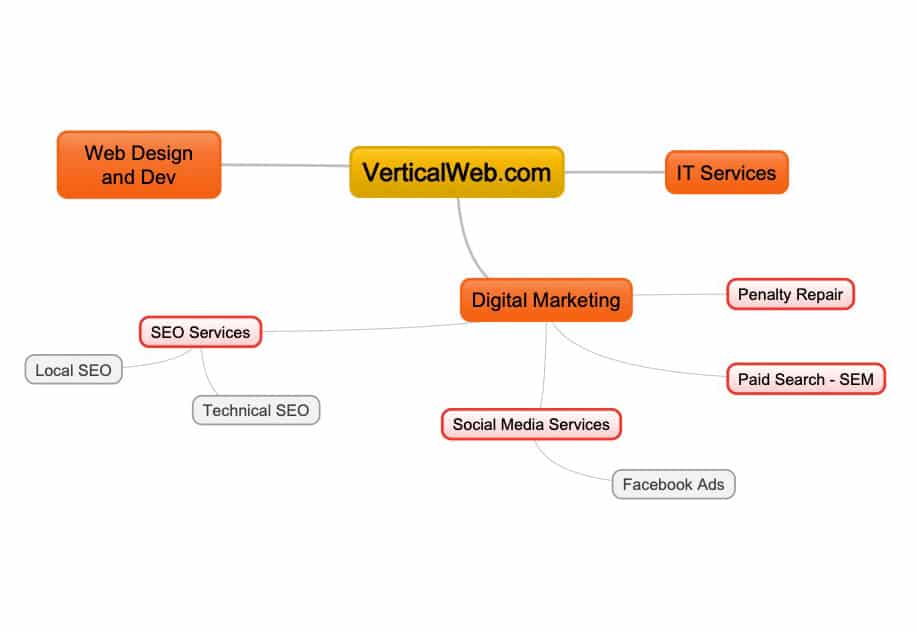Let’s face it Google has raised the bar on the quality of the content that appears on a website. Long gone are the days of keyword stuff pages that are overflowing with cliches just to up a word count, complex overly verbose sentences and every other trick we used to use to just fluff up a page. Every time I wrote a page, I would harken back to my days of writing obituaries and come ups with every conceivable way and word combination to reinforce that keyword. But Google is not dumb anymore and that means all drivel writing must stop.
I’ve been delivering this message for a while now. It’s really not new information in this day and age. When I teach SEO classes, I often have people ask me how to write a page of content for Google. I had one student go so far as to suggest I take the class to a resort for the weekend and have a 2-day writing seminar, at my expense. It’s a free class. But here is a long-promised guide on writing a valuable page of content that is worthy of Google ranking that page.
So what is Google looking for in a page of content?
Well, that right there is part of the problem, it’s not about Google. It’s about the end user and what provides value to an end user. I think in the old days, the focused keyword took precedence over the actual reader of the page. So it requires a shift in mindset. Keywords are important and must be there but only secondary to the theme of the article. As I sit here and write this article there is no consideration for a keyword at all. Until of course I’m done with the page and then will go back and add words like SEO or social media to the page. Notice I just did it and added a sentence that lent itself to having a keyword added.
So if I am writing for the end user the first thing I do is identify three things. Why am I writing the page? Who Am I writing the page for? And lastly, what do I hope to accomplish. Devoid those three things, it’s hard to produce a Google-worthy page. So, this page your reading for example. I am writing the page to help people understand how to write a page of content. The Who of this is some in-house training use, so writers can see how I think through the process, but also any aspiring content writer that wants to do it better. And then what do I hope to accomplish with this article. I hope to write an article/blog post so good that people make links to it.
It is not inconceivable to say that each article written will have different objectives, even if for the same website. The article directly prior to this was written to support a few of the local Houston chambers of commerce we work with. And the one before that was written for a friend who had to give a talk on digital marketing.
Now let’s look at that last paragraph. I hit a few things with it even though it fits perfectly within the framework of the page I’m writing. We are primarily a Houston Digital Marketing agency so I supported Houston by mention it for a local signal. I also added what I do as well as a few possible keywords I can use for interlinking. Yes back in vogue with a higher signal value it seems. I just do it naturally and that is key for Google. Everything you do must be natural and flow properly. Forcing it doesn’t work because you lose the engagement value for the end user and it seems contrived. I see a lot of contrived these days and those pages will no longer work.
So to recap each article must answer these questions
- Why am I writing this article
- Who am I writing for
- What am I hoping to achieve with the page?
Who is an Expert? Who’s Fake News?
When teaching, this question apparently is the hardest question on earth and 85% of the room always gets it wrong. Sure it allows you to quickly identify the narcissists in the room. But the simple fact is when it comes to your companies and by extension your websites we need to be experts and speak from the point of view of an expert. It took me about 15 years to get out of my own way on this subject. But as a content writer for a website, this must always be a top priority. You are the expert on the subject matter and it is your job to educate the reader. If you are ghostwriting someone it is your responsibility to represent and reflect their business as closely as if the website owner wrote the page. You should strive to capture the essence of that business and demonstrate why the reader would want to do business with the company.
As a professional writer, unless writing a book or a work of fiction, you are writing represents who commissioned you to do the work. As a creative person, it is hard to let go. But as a business owner, I can easily put myself in the shoes the person who I am writing for and want to represent them in a way they want to be represented. So as I write pieces for my clients, I always have to be representing them and their business. Is that page working to paint them as an expert and does that page have facts in it that make it relevant. Or, is it just a piece that doesn’t say much but meets the word count requirements and used the keyword a few times to meet that, regardless of the value of the end user and painting the company as an expert. I am always thinking of how can I get usable data worked into the page. And as I write this page, it may not quote or have stats but I am an expert and it is clear from our blog, we are the place people go to seek out the information.
Now that we understand that we have to be an expert, how does Google decide who is the expert and who isn’t or what is the value of a page? If you stop and think about it I bet you already know the answer. We live in a world where things are shared. Where when the news is worthwhile we hit the button and share it back to our social media profiles. And for every page I put up, I get shares. I sometimes get a lot of shares and what that means is that page has social proof value. Keep it real. If you did your job right you want real people sharing and not bots. Do that enough and you quickly move into the realm of expert and Google will take your content far more seriously. If an influencer shares your piece Google knows that too and now that factors into the value of the page Additionally Google may review the traffic to a page and see if it’s coming from multiple outside sources. This reminds me of the old adage if a tree falls in the woods. …But if you put a page of content on your site and no one reads it, what is its value. I can now argue it has no value and in fact, it is a negative. If large percentages of your pages are like this, the Pit of Misery is on your horizon. As a content writer, you have to be aware of that circumstance.
Mechanics Of Content Writing
When I start to unpack how to do this the first step in any decision is what do I need this page for. Now I know we talked above on the purpose of the page but I mean this in a different way. When evaluating a website there are several types of pages that go on that site. But before we do that I think we need to look at how a site is structured. And what our pages needs to consist of.
So before I start into a brand new website, I decide the structure and often map out the pages. And that map looks something like this:
So this is what the page looks like in practicality: https://www.verticalweb.com/digital-marketing I of course didn’t build out the whole diagram but you can see some of it here. In every place i have a supporting page you will see there is a read more link that goes to the ‘gray’ pages on our map.
https://www.verticalweb.com/digital-marketing/technical-seo .
Now that page is not the best page in the long run its a place holder for better content.
As a writer you may be asked to write these papes and they are often called topic pages becuase they are the topics our website covers. Understanding the secondary pages is also important as well so proper page information can be adapted to disscuss the clients services in regard to the topic. Why we feel that’s an important topic to cover and how it fits into the clients overall website scheme.
Topics Articles and Blogs oh my: Or the Pages of Content You Will Need To Write
Using the map above you will see there are three definitive page types that will need to be written to have a successful website. They are Topics, Articles and Blogs. And, for years we have been calling them all articles and then putting them in different places. But the reality is they all have different characteristics and purposes. Because of this, it is imperative for a writer to know what type of page they are writing, what its purpose is and where it falls in the hiearchy of the site. If the pages are on our map, as demonstrated above, those would be topic pages.
Topics pages should have the following characteristics (as of 2019):
- Word Count should be around 950-1000 words
- Sign Up for March’s Classes and Enjoy New Topics to Supercharge Your Business Marketing Strategy. - March 10, 2025
- IMCH: Looking ahead to SEO in 2025 - March 5, 2025
- March 2025 SEO Class Schedule - March 5, 2025


